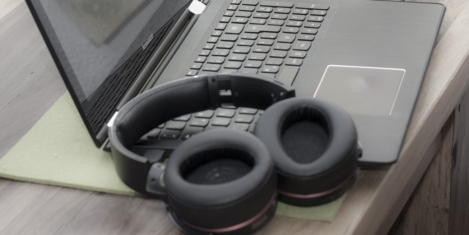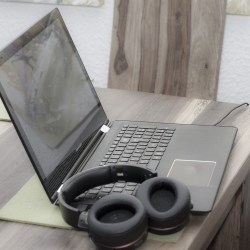To provide the best experiences, we use technologies like cookies to store and/or access device information. Consenting to these technologies will allow us to process data such as browsing behaviour or unique IDs on this site. Not consenting or withdrawing consent, may adversely affect certain features and functions.
The technical storage or access is strictly necessary for the legitimate purpose of enabling the use of a specific service explicitly requested by the subscriber or user, or for the sole purpose of carrying out the transmission of a communication over an electronic communications network.
The technical storage or access is necessary for the legitimate purpose of storing preferences that are not requested by the subscriber or user.
The technical storage or access that is used exclusively for statistical purposes.
The technical storage or access that is used exclusively for anonymous statistical purposes. Without a subpoena, voluntary compliance on the part of your Internet Service Provider, or additional records from a third party, information stored or retrieved for this purpose alone cannot usually be used to identify you.
The technical storage or access is required to create user profiles to send advertising, or to track the user on a website or across several websites for similar marketing purposes.
 The UK government has had to make many changes to its healthcare system in the last year to stop the spread of coronavirus, including asking people to stay home when possible, prioritising higher-risk patients and putting many routine appointments on pause throughout the pandemic. (more…)
The UK government has had to make many changes to its healthcare system in the last year to stop the spread of coronavirus, including asking people to stay home when possible, prioritising higher-risk patients and putting many routine appointments on pause throughout the pandemic. (more…)








 More than six in ten UK managers have experienced burnout at work because of the COVID-19 pandemic, with a fifth considering quitting their job as a result, according to new research from
More than six in ten UK managers have experienced burnout at work because of the COVID-19 pandemic, with a fifth considering quitting their job as a result, according to new research from 
 The COVID-19 pandemic has brought anxiety to many, but people are positive about their work, claims a new survey from
The COVID-19 pandemic has brought anxiety to many, but people are positive about their work, claims a new survey from 
 The much discussed idea of Zoom fatigue turns out to be a real phenomenon according to new peer reviewed research from Stanford academics. The study published in the American Psychological Association’s journal
The much discussed idea of Zoom fatigue turns out to be a real phenomenon according to new peer reviewed research from Stanford academics. The study published in the American Psychological Association’s journal 
 As Brits continue to spend an extensive amount of time at home, the importance of maintaining a good work-life balance has never been so vital. For their
As Brits continue to spend an extensive amount of time at home, the importance of maintaining a good work-life balance has never been so vital. For their 
 How good your line manager is makes the difference between an employee coping or struggling in lockdown. But too often line managers’ heroic efforts are not noticed by their employers, claims new report, titled
How good your line manager is makes the difference between an employee coping or struggling in lockdown. But too often line managers’ heroic efforts are not noticed by their employers, claims new report, titled 
 With working from home set to continue for millions of UK workers, research by the
With working from home set to continue for millions of UK workers, research by the 
 When the COVID-19 crisis hit the UK in March 2020, many commented that the virus didn’t discriminate and that its impact would be felt equally by everyone. However, as highlighted in Nuffield Health’s
When the COVID-19 crisis hit the UK in March 2020, many commented that the virus didn’t discriminate and that its impact would be felt equally by everyone. However, as highlighted in Nuffield Health’s 
 ‘Stress by Sector’ data released by
‘Stress by Sector’ data released by 
 The uncertainty and fallout of the COVID-19 pandemic have wreaked havoc on the mental health of nearly all of us. In a recent conversation with an HR leader, she shared with me that every single person on her leadership programme reported suffering disrupted sleep due to their anxiety around business uncertainty. The irony is the business is in better shape than it has been for years thanks to the effective management of the firm’s finances during the pandemic. Regardless of reality, the uncertainty is impacting on everyone’s resilience levels.
The uncertainty and fallout of the COVID-19 pandemic have wreaked havoc on the mental health of nearly all of us. In a recent conversation with an HR leader, she shared with me that every single person on her leadership programme reported suffering disrupted sleep due to their anxiety around business uncertainty. The irony is the business is in better shape than it has been for years thanks to the effective management of the firm’s finances during the pandemic. Regardless of reality, the uncertainty is impacting on everyone’s resilience levels. 
 Philanthrocapitalism is a term that’s only 15 years old. A modern concept for the modern age. Or is it? In the late 1800s, George Cadbury bought a plot of land five miles south of Birmingham to relocate his factory and expand his chocolate empire. But greater levels of chocolate production weren’t his only concern; he also built an entire village to accommodate the new factory’s workforce. The plan was for this village – called Bournville, which now shares its name with the brand’s famous dark chocolate – to “alleviate the evils of modern, more cramped living conditions”. Port Sunlight, built on the Wirral Peninsula by the Lever Brothers, whose manufacturing company is now part of Unilever, offers up a similar story.
Philanthrocapitalism is a term that’s only 15 years old. A modern concept for the modern age. Or is it? In the late 1800s, George Cadbury bought a plot of land five miles south of Birmingham to relocate his factory and expand his chocolate empire. But greater levels of chocolate production weren’t his only concern; he also built an entire village to accommodate the new factory’s workforce. The plan was for this village – called Bournville, which now shares its name with the brand’s famous dark chocolate – to “alleviate the evils of modern, more cramped living conditions”. Port Sunlight, built on the Wirral Peninsula by the Lever Brothers, whose manufacturing company is now part of Unilever, offers up a similar story. 








April 1, 2021
Finding a new sense of purpose in the way we all do business
by David Lineen • Comment, Environment, Property, Wellbeing